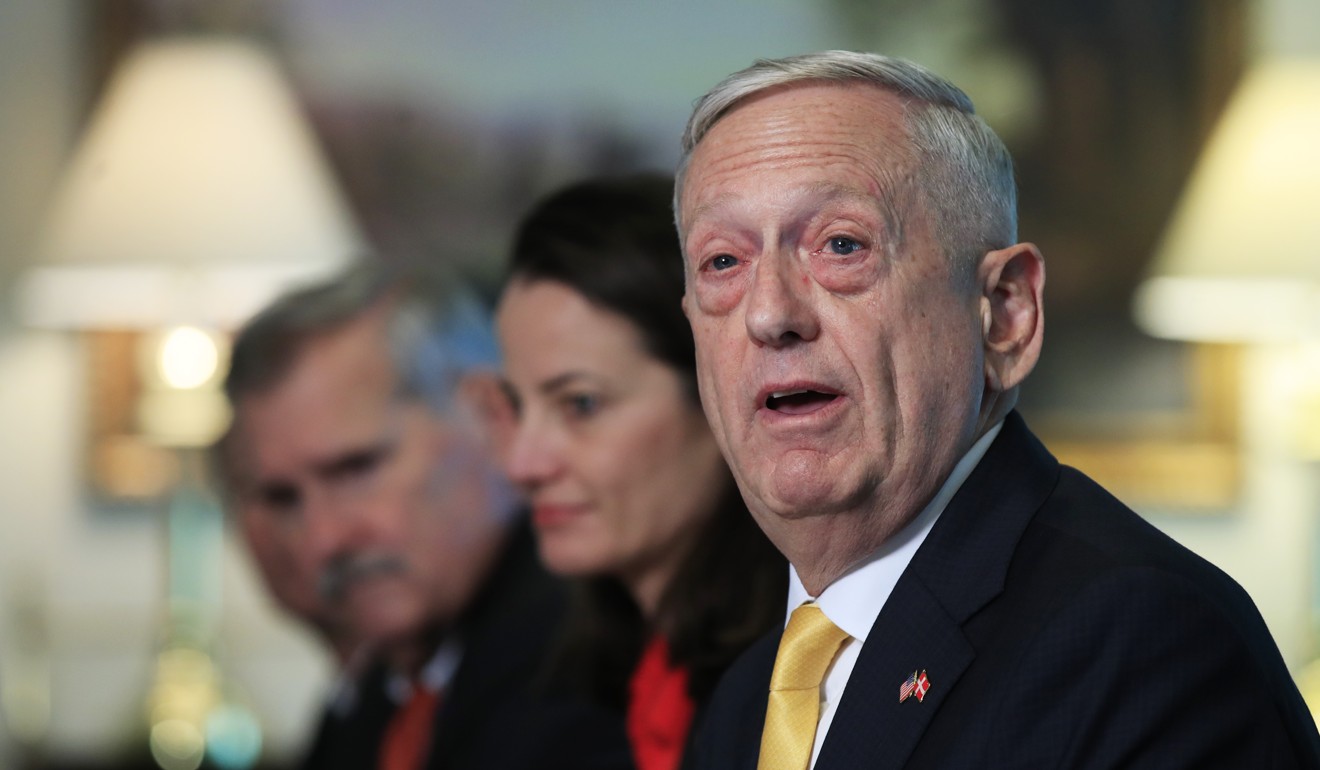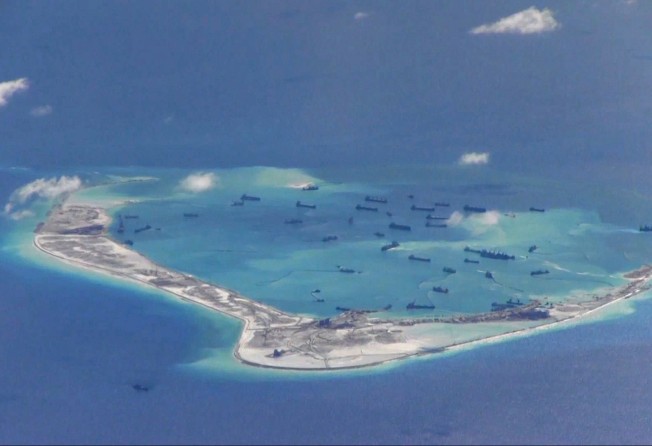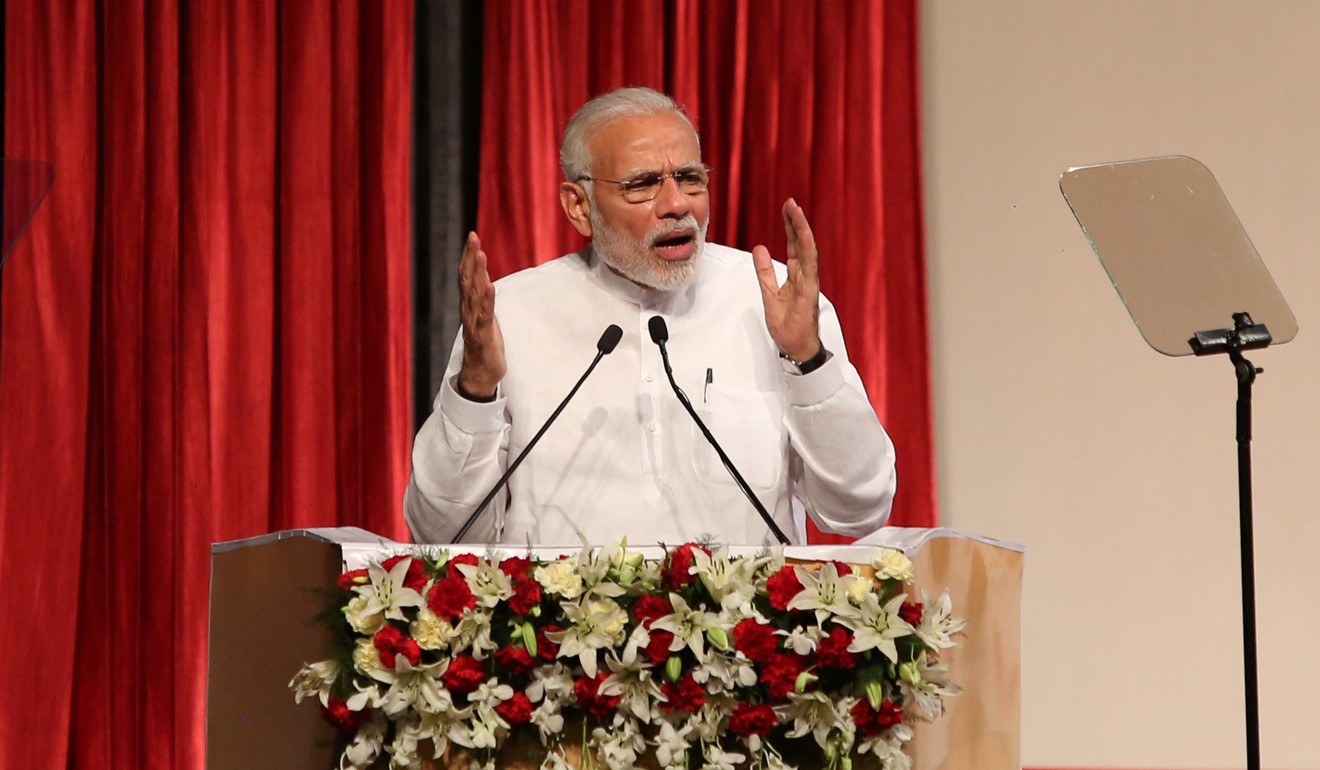
China will send team to minimise conflict at regional security talks, sources say
With militarisation of artificial islands in South China Sea on agenda, Beijing may try to shape summit as ‘academic exchange’ rather than policy debate

With the US set to raise the issue of China’s militarisation of its man-made islands in the South China Sea at a regional security dialogue in Singapore this weekend, Beijing’s representatives have been carefully chosen to minimise tensions, sources said.
The IISS Shangri-La Dialogue, which runs from Friday to Sunday, is an annual security summit for Asia attended by defence ministers and other officials from more than 50 countries, including China, the US, Australia, Japan, India, France, Vietnam and the Philippines. This year’s agenda is expected to be dominated by South China Sea disputes and the North Korean nuclear crisis.
En route to the city state, US Secretary of Defence Jim Mattis said America would continue to maintain a “steady drumbeat” of naval operations around the disputed waters, adding that “only one country” seemed bothered by the vessels’ routine activities.
“We are going out of our way to cooperate with Pacific nations, that’s the way we do business in the world,” he said. “But we are also going to confront what we believe is out of step with international law, out of step with international tribunals that have spoken on the issue.”
Mattis is set to deliver a speech on Saturday titled “US leadership and the challenges of Indo-Pacific security”, which makes reference to China’s increasing maritime competition with powers such as the US and India.

The dialogue comes amid rising criticism from the US and its allies of Beijing’s actions in the South China Sea, and in particular its deployment of advanced weapons and aircraft, including its nuclear-capable H-6K strategic bombers.
Despite the likely tone of the talks, the Chinese delegation in Singapore will be headed not by a military policymaker, but by He Lei, a lieutenant general and vice-president of the Academy of Military Sciences, in a move designed to shape the summit as an “academic exchange” rather than a policy debate.
Also, a source close to the Chinese delegation said Zhou Bo, a senior colonel from the People’s Liberation Army, would make a speech at a special session on competition and cooperation between China and India, ahead of a keynote address by Indian Prime Minister Narendra Modi on potential conflicts in the region.

Zhou, who is also director of the Centre for Security Cooperation at the Office for International Military Cooperation under China’s defence ministry, would take part in a panel session on Saturday on managing competition in regional security, the source said.
Yue Gang, a retired PLA colonel and military analyst, said the security dialogue had often provided a platform for the US and its allies to raise their concerns about China.
“The occasion is more about exchanges on [military] theories, so by sending academic representatives, we can refute those wrong viewpoints,” he said. “At the same time, we don’t want to make the exchange appear too confrontational.”
China is facing increasing tension with the US and its neighbours over the South China Sea issue. On Sunday, two US warships sailed close to islands occupied by China in the Paracel group, and last week the US military withdrew China’s invitation to take part in the upcoming Rim of the Pacific exercise in Hawaii “as an initial response to China’s continued militarisation of the South China Sea”.
Also last week, Vietnamese President Tran Dai Quang said that Japan had helped to boost the Southeast Asian nation’s maritime defence capability in the disputed waters.
Beijing has also moved to improve relations with Hanoi. This week, a delegation from the Communist Party of Vietnam visited China with the two sides agreeing to increase cooperation.
Meanwhile, Philippine Foreign Secretary Alan Cayetano said on Monday that President Rodrigo Duterte had set out “red lines” for Chinese activities in the South China Sea, including not engaging in oil and gas extraction in disputed areas, and not building in the Scarborough Shoal.
But Colin Koh, a research fellow at the S. Rajaratnam School of International Studies, said that Duterte’s remarks were more likely intended for his opponents at home, who have criticised what they see as his lack of action on China’s militarisation of the disputed waterway, rather than a genuinely tougher stance towards Beijing.